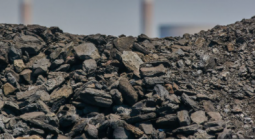Why are poorer countries bearing the brunt of climate crisis?

Low-income nations are more exposed to environmental hazards and pollution and have a harder time recovering from the impacts of climate change, according to the Intergovernmental Panel on Climate Change (IPCC) Fourth National Climate Assessment Report.
For example, it takes longer for low-income communities to be rebuilt after natural disasters, and many people in poorer nations don’t enjoy the same social safety nets as those in wealthier nations if their livelihood is crippled by a climate disaster.
There are also geographical considerations. Many developing nations are coastal, and therefore more vulnerable to storms and floods.
According to the United Nations Development Programme, developing countries suffer 99% of the casualties attributable to climate change.
-
Why are poorer countries more affected by man-made climate change?
Climate change aggravates the effects of population growth, poverty, and rapid urbanisation. The climate crisis is likely to push millions further into poverty and limit the opportunities for sustainable development.
Impoverished families in developing countries are often the least to blame for man-made climate change – yet they typically bear the worst of the consequences.
One example is island states in the Caribbean. In 2020 the region had a record-breaking 30 tropical storms - including six major hurricanes.
On islands such as Antigua and Barbuda, experts say that many buildings have been unable to withstand the intense winds these storms have brought.
"We used to see category four hurricanes, so that’s what we have prepared for with our adaptation plans, but now we are being hit by category five hurricanes," said Diann Black Layner, chief climate negotiator for the Alliance of Small Island States.
-
How responsible is the developing world for the climate crisis?
Developing countries have historically contributed a very small proportion of the damaging emissions driving climate change - while currently the wealthiest 1% of the global population account for more than double the combined emissions of the poorest 50%.
The G20 is responsible for around 80% of global greenhouse gases and a similar proportion of carbon dioxide, the gas produced by burning fossil fuels that is the main cause of the rise in global temperatures which are triggering an increasing intensity of heatwaves, droughts, floods and storms.
"Those who pollute are not being sanctioned," Molwyn Joseph, Minister of Health, Wellness and the Environment for the Caribbean nation Antigua and Barbuda, told DW.
"Those who pollute do not appear to be empathetic to the disaster that is faced by small island developing states as a result of the pollution."
-
What are richer nations doing to help?
The mounting economic cost of the climate crisis in the developing world will far exceed financial assistance that has been pledged by richer nations, a UN report recently warned.
The cost of climate impacts in developing countries could be up to $300bn (£220bn) per year by 2030 and $500bn per year by 2050, the analysis found.
This is between five and 10 times higher than the financial aid richer countries have pledged to support countries dealing with worsening effects of global heating.
Securing finance to help poorer nations was a central aim of the Cop26 climate summit in Glasgow.
But ahead of the conference, the UK announced that rich nations had not met a deadline to provide poorer nations with $100bn a year in climate finance by 2020.
-
Should wealthier nations pay climate change reparations?
Some argue that nations should pay reparations to vulnerable countries for the damage already caused by climate change.
Wealthy nations have never acknowledged legal liability for the impact of their emissions, most likely because the bill would be astronomical. Scotland is the only country promising to donate to a compensation fund for countries whose economies have been damaged by climate change with a £1m pledge.
Saleemul Huq, director of the International Centre for Climate Change and Development in Bangladesh, told the BBC that Scotland’s pledge is the first time any developed nation has admitted responsibility for contributing to global warming – but predicts it will not be the last.
24 November 2021
INDEPENDENT





